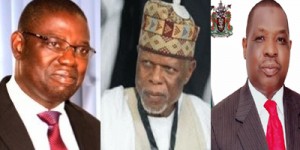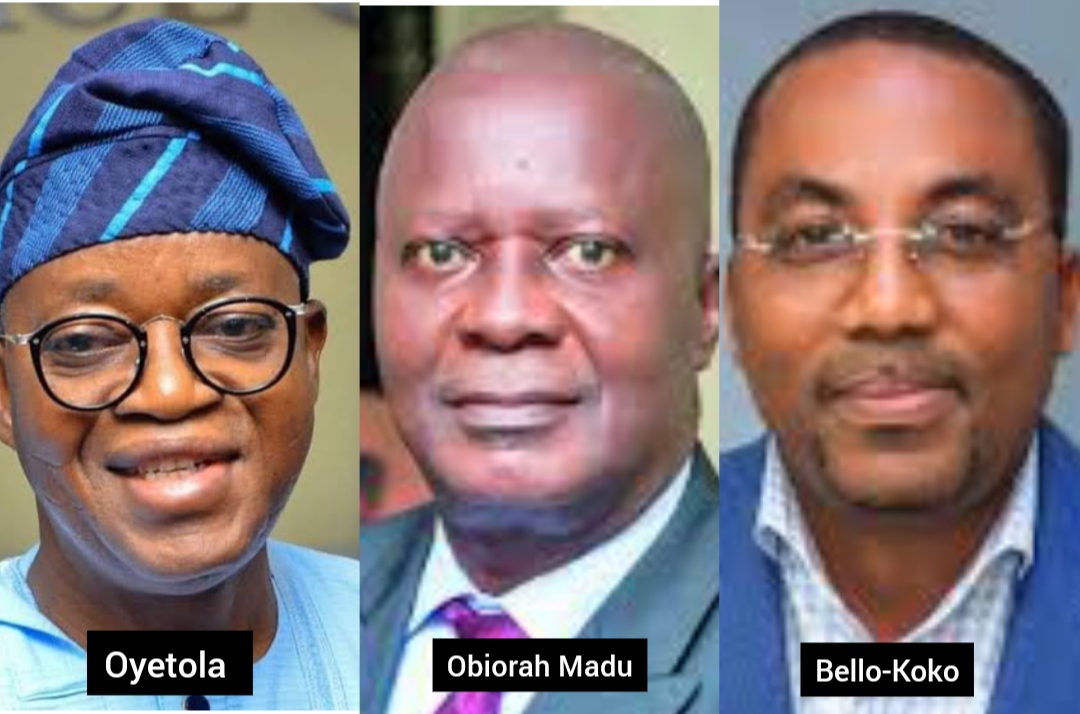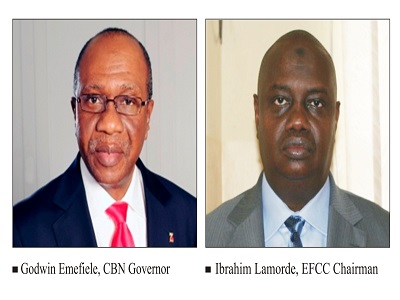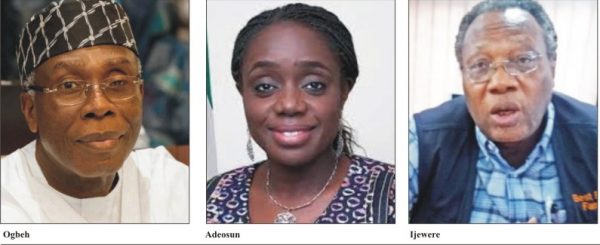Change Management In Maritime Agencies: Any Hope For Nigeria?

In attempting to decipher the direction that a country is headed politically and economically, one must take into account the caliber of people placed at the helm of affairs of key government ministries, departments and agencies. Thus, as the administration of President Muhammadu Buhari clocks 100 days in office, political observers have been keenly awaiting the unveiling of the president’s ministerial list in other to determine in which direction he is steering Nigeria in this critical season.
So far, even though President Buhari has not announced his cabinet, he has however made certain key appointments since assuming office. Among other things, Buhari began by setting up a seven-man Advisory Committee on anti-corruption, headed by prominent professor of Law, Itse Sagay. The task of that committee is to advise the president on how best to handle and tackle corruption cases in Nigeria, with a view to reforming the economic system of the nation.
Similarly, the maritime industry is not exempted, first, was the booting out experienced by the former Director-General (DG) Dr.Patrick Apkobolokemi of the Nigerian Maritime Administration and Safety Agency (NIMASA), and he is yet to be replaced, next is the quiet exit of the former Nigerian Ports Authority (NPA) boss, Alhaji Sanusi Lamido Ado Bayero who has since been replaced by his predecessor, Mallam Habib Abdullahi and not forgetting the controversial and sensational retirement of the former Comptroller General of Customs Alhaji Abdullahi Dikko and his eventual replacement by a retired Colonel in the Nigerian Army, Col. Hammed Ibrahim Ali, in the anthem of purging corruption and entrenching discipline back into the industry.
This moves by the Presidency has left a lot of stakeholders with misgivings on the leadership and management style to expect from non technocrats in the industry, with murmuring of favoritism being the intent that influenced the configuration of leaders rather than their ability to be able to apply prompt and precise decisions on the sensitive operations that their position requires, especially in the Nigeria customs service which has the most technical and complicated operating system.
Speaking with MMS Plus on the leadership and management pattern expected across these essential agencies of government in the maritime industry, the General Manager of Ports, Terminal Multi-services Limited (PTML), Mr. Babatunde Keshinro said, “We want to see the content of their policies and programmes, that is what will determine our reaction, the President reserves the executive right to place at the head of any agency anyone he wishes. He suggested that anyone grounded in the knowledge of executive management principles should be able to function in any organization he is placed. The important thing is to see the policies of the newly appointed heads of the maritime agencies before reaching any conclusions.
Expressing his position on the matter, a maritime lawyer and key stakeholder, Barr. Emmanuel Nwagbara affirmed, “Sometimes we need to take a step backwards to take a giant leap forward, so the appointment of non technocrats in the leadership of government organizations in the maritime industry does not really mean that we have gotten it wrong. This is the era of change and we have to support the President to effect the right type of change. But if it was left to me, I will prefer that we use people from within these agencies.
According to him, “Customs, for instance, is a very highly technical and important organization of government with very highly organized operations and in the past, we have had two CGs coming out directly from their midst and in that period, we recorded lots of improvements, and achieved growth in their operations.”
He said, “The fact that the person on top now is not from the inside means that it might take some time for any significant change to be recorded in these organizations, we will give them our support and my advice is that those that will be working with them should also give them their unreserved co-operation so that they can make impact.
“My advice to the new men on the seat is to learn fast and the only way they can achieve this is to act like they know nothing, they should bring themselves low because this is the only way they can move forward. But like I said before and I repeat it again that if it was left to me, I will prefer to bring people from the inside to be on top.” He maintained.
However, while expressing a view contrary to the position of Keshinro, another stakeholder in the industry, founder National Association of Government Approved Freight Forwarders (NAGAFF), Dr. Boniface Aniebonam opined that, the situation should be properly managed as it is already causing dissention among the ranks and files of the customs service. While no one may be second-guessing the Commander-in-Chief, he feels that it is often better to put ‘round pegs in round holes and square pegs in square holes,’ rather than the other way around.
Aniebonam said, “The intrusion of non-professional Officers at the highest level of the Customs administration is most disturbing to the officers.” He noted that in the past, similar events had occurred where previous presidents by-passed long-serving customs officer and brought in ‘outsiders’ to become CG.
One must not also forget in a hurry that, about the same time that the president put together his anti-corruption advisory team, he also mandated all federal ministries, departments and agencies to pay all government revenues into a Treasury Single Account, (TSA), henceforth.
According to the Governor of Lagos State, Mr Akinwunmi Ambode, “What President Muhammadu Buhari has come up with in the last 100 days is about credibility and integrity…Everybody is beginning to feel that they must obey the rule of law. All revenue agencies are now paying to a single account and that makes everybody to be accountable.”
Buhari has also proposed the setting up of special anti-corruption courts to swiftly handle cases of graft. In a country where the legal system can be incredibly slow and the dispensation of justice could be compromised, many supporters of the president have applauded this new initiative.
Lagos lawyer, Mr. Festus Keyamo, said the plan to create special courts to handle corruption cases was a welcome development. He however urged the government to put certain resources and laws in place for such special courts to achieve their intended objectives.
According to Mr. Keyamo, “Special courts will not address the integrity of judges that will be sitting there. It is a welcome development and government should go ahead to establish them but some things should be put in place for the courts to achieve the intended goals.”
But others are unimpressed with the notion of special anti-corruption courts. They call to question the rationale behind it, citing legal conflicts as we already have statutory courts in the land.
A Senior Advocate of Nigeria, Mr. Joseph Nwobike, described the establishment of special courts as needless. He opined that instead of creating these courts, government should focus on capacity building to cut across all the parastatals and sectors of the economy especially the maritime industry which has been largely neglected by successive governments.
Col. Ali’s appointment to head the Customs Service has not been received well by a cross section of those in the industry, as well as in the top hierarchy of the Customs. Even the National Association of Government Approved Freight Forwarders (NAGAFF) has openly expressed reservations concerning the appointment of the new customs’ boss.
Would the fact that he was brought from ‘outside’ impinge on his ability to carry out the task of managing, coordinating and leading the Customs Service? As a former state administrator, would his knowledge about administration not come to bear or would his limited knowledge of tariff be a barrier in the smooth execution of his job as Comptroller-General of Nigeria Customs Service? Also, should having a maritime background or qualification be a requirement in the selection of leaders in the maritime industry?
Perhaps, one might argue that other agencies like NIMASA and NPA have technocrats at the helms but mind that the fate of the NIMASA Acting DG is yet undecided as it hangs in the balance and depends largely on the whims of a change mantra President.








